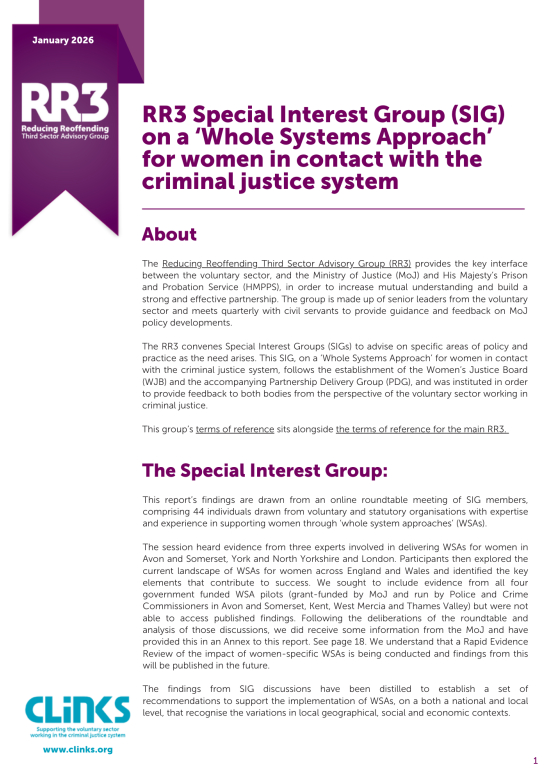Photo: Beekeeping at HMP Prescoed. Taken by Ben Langdon, Mile 91, Prisoners' Education Trust
The Prisoner Learning Alliance (PLA) has been working with Clinks and our membership to monitor the impact of the Dynamic Purchasing System (DPS) and seek improvements to it. In this guest blog, Francesca Cooney from Prisoners' Education Trust - who convene the Prisoner Learning Alliance - looks at feedback from the voluntary sector and how the government has responded.
The DPS is a key part of how prison education is now being delivered. The system went live on 1st April 2019 following last year’s reforms to prison education provision and is the process for prisons to directly commission services for their students (Read more about the DPS in this Clinks blog). It is designed to provide a way of buying in bespoke or flexible activity provision. Organisations can register on the DPS if they want to know about available contracts, and then decide whether to bid for them. Tenders have included drama projects and specialist education for older prisoners with the majority being of contracts being for Information, Advice and Guidance services.
Earlier this year, Clinks and the PLA became aware that there were some problems with the DPS. In March, we put a call out to the voluntary sector to ask you about your experiences of using the DPS. The PLA also surveyed senior prison staff to find out their views.
What have voluntary organisations and prison staff told us?
There have been delays to prison education departments starting to use the DPS to buy services as they’ve been dealing with issues surrounding the new Prison Education Framework (PEF) contracts. Many prison staff have told us that using the system has also taken more time than they anticipated.
Both prison staff and voluntary sector providers told us that the contract length was an issue. Currently, DPS contracts can run for up to 12 months. This is too short for some education activities and in particular for Information, Advice and Guidance contracts. As DPS contracts were commissioned later than expected, this has meant shorter periods in which to deliver them. Mobilisation periods have been hard to meet, particularly when there are lengthy security processes for staff before they can work in prisons. This impacts disproportionately on smaller organisations who cannot move staff from other teams to deliver services or recruit additional staff quickly.
Most significantly for the voluntary sector, there has been no way of knowing what contracts might be coming up through the DPS. This has made it impossible for organisations to plan what they might bid for and organise their staff and budgets.
What have Clinks and the PLA done?
We fed this back to the commissioning team in MoJ and senior staff in the HMPPS education team. They agreed to meet with us to discuss this in detail. Clinks and the PLA invited colleagues from the voluntary sector to a roundtable with HMPPS and MoJ. The purpose of the roundtable was for HMPPS and MoJ staff to outline the work they were doing to support their staff who use the DPS, and for voluntary sector organisations to explain their concerns. Minutes of this meeting are available here.
How has the Ministry of Justice responded?
The Ministry of Justice (MoJ) commissioning team and Her Majesty’s Prison and Probation Service (HMPPS) officials have told us that they are keen to work with the voluntary sector and to understand our concerns. They have committed to working with prisons to make sure education services are commissioned and that the DPS process works effectively.
Some changes are in place already, including face-to-face training for learning and skills managers and reissuing guidance previously provided. They are working on their planning processes for future tenders and we hope that there will be more visibility so that organisations will know about forthcoming opportunities. We welcome these changes and we hope that voluntary sector providers will begin to see an improvement in the system when they are bidding for contracts.
The MoJ has also committed to look at the possibility of extending the maximum contract length. This would be an incentive for smaller voluntary sector providers to bid for contracts and give prison staff more flexibility when commissioning as well as delivering more consistent service provision.
Making the best use of the DPS is extremely important, to ensure that good services are commissioned for prisoners and that establishments can provide a range of educational opportunities and activities. We will be continuing to monitor how the DPS is working and we are very interested in your feedback. If you have any information you would like to share with us, please do contact us at info@prisonerlearningalliance.org.uk
What's new
Blogs
Dr Summer Alston-Smith appointed as new CEO of Clinks
Publications
RR3 Special Interest Group (SIG) on a ‘Whole Systems Approach’ for women in contact with the criminal justice system
The RR3 SIG drives a Whole Systems Ap
Latest on X
The role is for a leader from an organisation focused on racially minoritised people, with expertise in service delivery, policy, advocacy, or related areas in criminal justice. Racial disparities are present at every CJS stage. This role ensures these voices are central in shaping policy to help address and eradicate them. Apply by Mon 18 Nov, 10am. More info: https://www.clinks.org/voluntary-community-sector/vacancies/15566 #CriminalJustice #RR3 #RacialEquity

